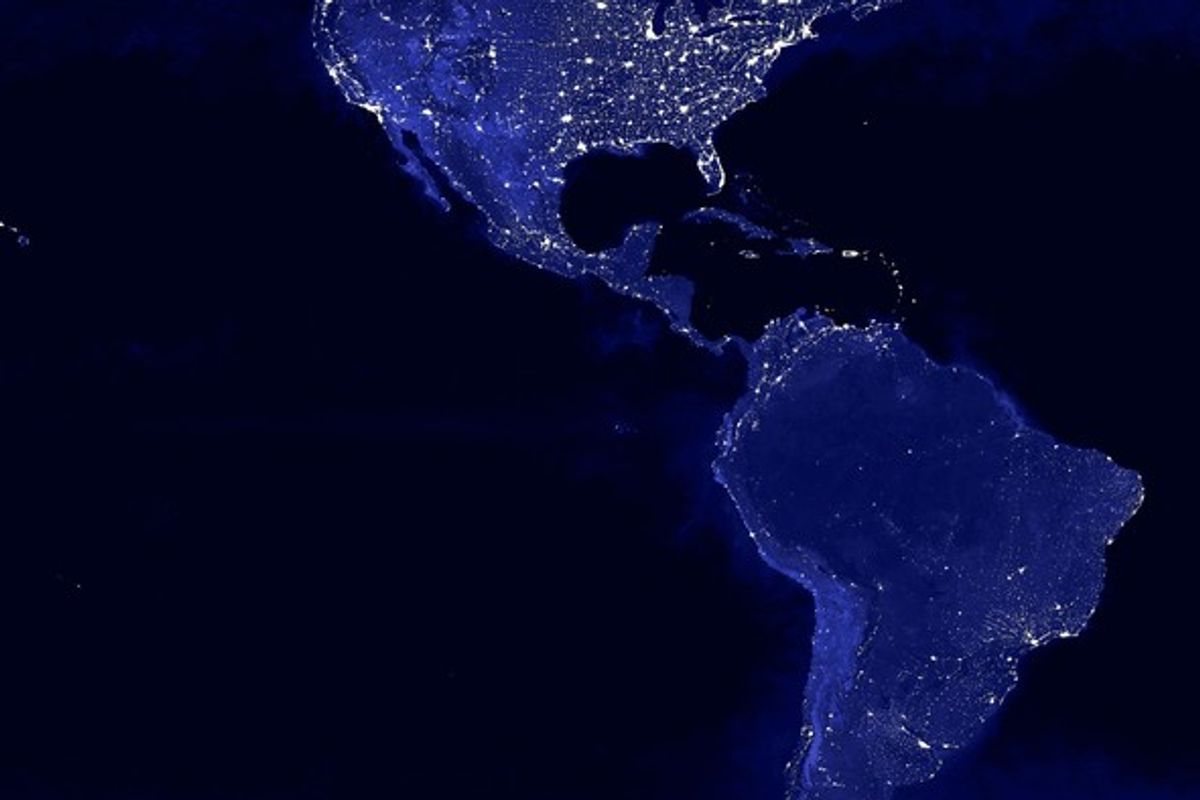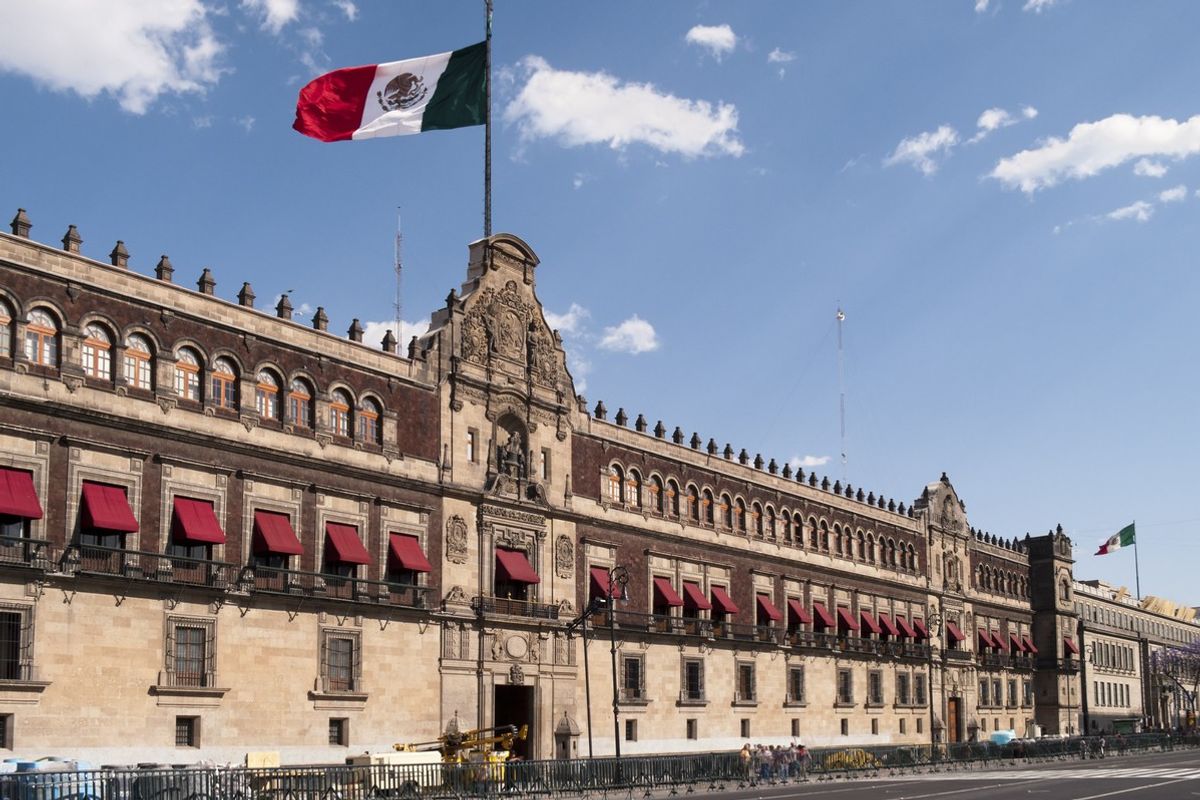Mexico’s stability affects the U.S., and U.S. policy has an effect on its southern neighbor’s stability. The recent Fund for Peace Fragile States Index showed Mexico worsened in terms of stability during the past year. The Cipher Brief’s Kaitlin Lavinder spoke with the former chief of the U.S. Border Patrol, Michael Fisher, about how the two countries work together on securing the hemisphere – and whether that is likely to change under the Trump Administration.
The Cipher Brief: Does U.S. policy have an impact on Mexico’s internal stability?
Michael Fisher: Yes. Whether you’re talking about immigration or trade, there’s a lot of dependence from Mexico on the United States to continue to stabilize their economy.
TCB: Is the reverse true? Does internal Mexican affect U.S. stability and security?
Fisher: Probably to a very lesser extent. There are some symbiotic relations, but the U.S. economy is so strong I can’t imagine that any policy of Mexico would have an impact to the degree that the reverse is clearly true.
TCB: Why then, from a policy standpoint, should the U.S. have an interest in helping Mexico with its internal security and stability?
Fisher: The U.S. has had an interest there over the years, if you look at the different programs we support. The military-to-military relationship between the two countries has been one of the constants that has remained strong over the years, regardless of other types of policies, like immigration. Quite frankly, the U.S. certainly has a stake in a stable Mexico both in terms of their own capabilities when it comes to national security and from the economic standpoint as well.
TCB: Do you think that the military-to-military relationship is going to change at all under the Trump Administration, for better or worse?
Fisher: It’s been strong. I can only imagine that it would continue to strengthen under this current administration.
TCB: What about things like the Merida Initiative – the security cooperation between the U.S. and Mexico – do you foresee that changing?
Fisher: No, I hope it accelerates Mexico’s progress, both in terms of their jurisprudence and their legal goals and objectives they’ve set out. The U.S. has been trying to assist how we can to help them build a very strong law enforcement and judicial process in Mexico, which was one of the pillars of the Merida Initiative. This administration will likely continue to help them achieve those stated goals and objectives.
TCB: Has the initiative been effective? Has it really helped Mexico strengthen its law enforcement?
Fisher: Any incremental change toward a law-and-order civil society is going to be in Mexico’s best interest in the future. I can’t point to anything definitive except some of the recent extraditions – although Mexico’s done that over the years.
TCB: What else should the U.S. be doing, if anything, to help stabilize Mexico?
Fisher: The U.S. can continue to support them, whether it’s through the ISR [intelligence, surveillance, and reconnaissance], shared intelligence, or joint initiatives to really reduce the amount of heroin coming into the United States from Mexico, which certainly affects Mexico more than the United States. If you look at sheer numbers – and I’m sure you’ve read stories on this – there’s an opioid epidemic in a lot of cities in the U.S. and a lot of that heroine is coming from Mexico. So if the U.S. really wanted to take a look at focusing law enforcement initiatives, it would be on heroin coming in from Mexico to the United States.
TCB: Is the intelligence-to-intelligence relationship as strong as the military-to-military one?
Fisher: It’s obviously not the types of sharing we do with the Five Eyes and others, but there’s a lot of law enforcement sensitive or sensitive but unclassified law enforcement information that gets shared. Some is from Homeland Security through CBP [U.S. Customs and Border Protection]. On the frontlines of sharing information, ICE [U.S. Immigrations and Customs Enforcement] shares information regarding individuals who have committed crimes here in the United States and are being deported through a port of entry. They will share that information in advance so Mexico has some advance notice of individuals coming back and the crimes they were convicted of in the United States, and they can take whatever necessary steps they need to – whether that’s just a notification or sometimes it’s a handoff, where they take custody of that individual right there at the exchange.
With what we share – intelligence or capabilities broadly speaking – there’s a lot of interest in and around the border areas where the cartels have a lot of leverage and power and where a lot of the criminal activity occurs. We continue to press Mexico to have some sort of sustained law enforcement presence in and around the border areas so that when we detect something we can notify them through joint communications processes so they can actually preempt a potential smuggling opportunity that’s coming into the U.S. and make the arrest before they even come into the United States. We experimented with some of those pilot programs over the years. We’ve had mixed success. The challenge has always been sustainability.
TCB: Is Mexico right now increasing presence on that border area? Or has it been stagnant?
Fisher: It’s been kind of stagnant. They are somewhat reflexive in terms of where and how they deploy. Their biggest capability against the cartels largely comes from the military. And when the crime or the violence increases, typically it increases in places like Mexico City, so it draws a lot of those resources away from the border areas for them to be able to stabilize the larger population areas that are being affected through extortion or kidnappings and ransom for money, or what have you. So they’re somewhat reactive. They don’t have – like the U.S. – the necessary resources to cover everything. When they go through their own allocation process a lot of that is driven by current events – where is the crime occurring and in what areas? And to the extent that they can operate along the border they do; but it’s probably a smaller percentage of their mission focus right now.
TCB: And do you think that’s mainly a product of lack of resources, or do you think it’s an issue with corruption in local forces and therefore a desire to use the military instead?
Fisher: There’s a whole host of reasons for that, not the least of which is corruption. Whether you’re looking at narcotics trafficking or human smuggling, it’s a billion-dollar industry, and I would be naïve to think that somehow the government at whatever level is not getting some of that money. When I was in the patrol and dealing with the officials in Mexico, they would tell you that not preventing someone from leaving their country to come into the United States illegally is not against their constitution. So basically, they're not going to put resources to stop smugglers.
The best that they’ve been able to do, probably about a decade or so ago, is they had a group called Grupos Beta, and this was kind of like the U.S. equivalent to [the] Red Cross. They would operate in the desert in Mexico, just to make sure that the aliens were hydrated and had enough food before they would make the trip to the U.S. I wouldn’t consider that an enforcement presence; I would consider that more of a humanitarian concern. I’m not knocking it, but I’m saying that in terms of them being as vigilant on their northern border as we are on our southern border, it pales in comparison.












